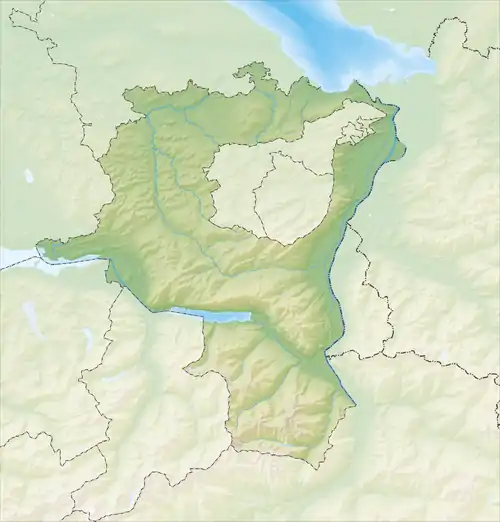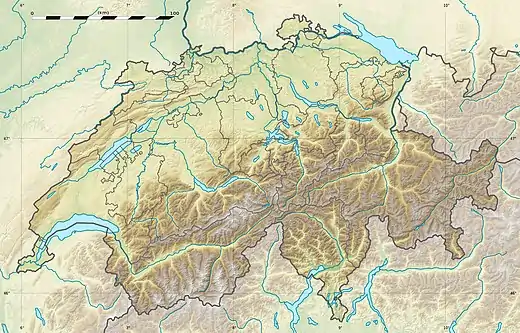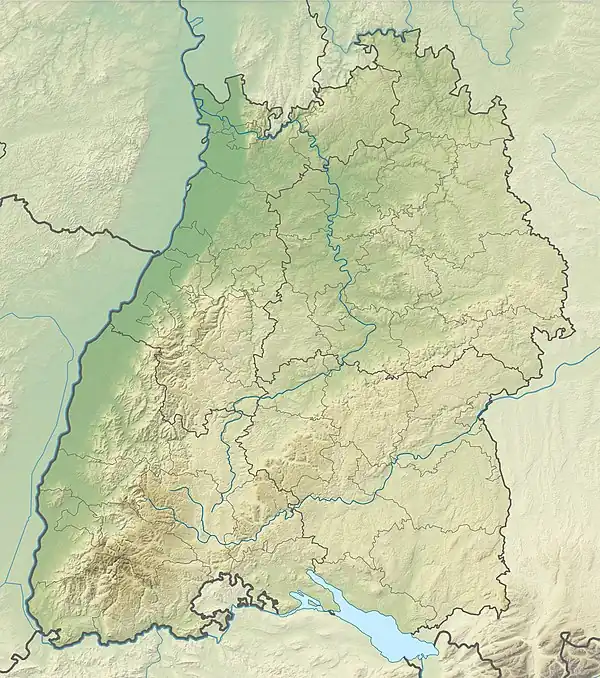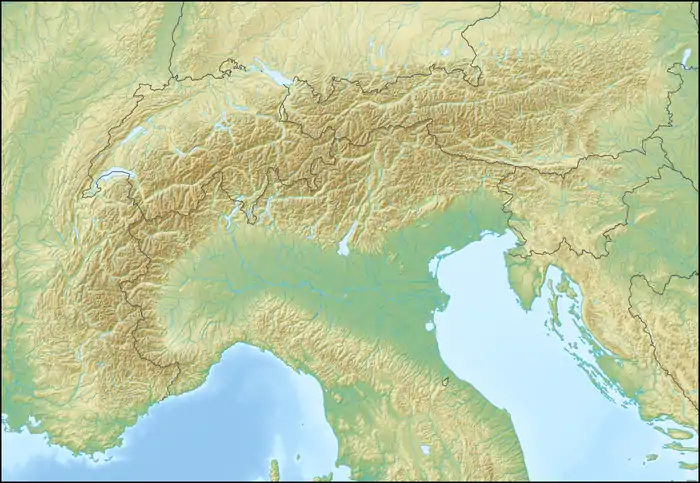| Obersee | |
|---|---|
_(cropped).JPG.webp) View at dusk of the Winterstaude on Lake Constance's Obersee | |
 Obersee  Obersee  Obersee  Obersee  Obersee  Obersee | |
| Location | Tripoint of Germany, Austria and Switzerland |
| Coordinates | 47°37′N 9°26′E / 47.61°N 09.44°E |
| Primary inflows | Alpine Rhine, Bregenzer Ach, Argen, Alter Rhein (Fußacher Durchstich), Schussen, Dornbirner Ach, Seefelder Aach, Rotach, Stockacher Aach and smaller streams |
| Primary outflows | Seerhein |
| Max. length | 63 kilometres (39 mi)[1] |
| Max. width | 14 kilometres (8.7 mi)[1] |
| Surface area | 472 square kilometres (182 sq mi)[2] |
| Average depth | 101 metres (331 ft)[2] |
| Max. depth | 251 metres (823 ft)[2] |
| Water volume | 47.6 cubic kilometres (11.4 cu mi)[2] |
| Shore length1 | 186 kilometres (116 mi)[2] |
| Surface elevation | 395.33 metres (1,297.0 ft) |
| Islands | Lindau, Mainau |
| Settlements | Überlingen, Meersburg, Friedrichshafen, Lindau, Bregenz, Rorschach, Konstanz |
| 1 Shore length is not a well-defined measure. | |
The Obersee (German for "Upper Lake"), also known as Upper Lake Constance, is the much larger of the two parts of Lake Constance, the other part being the Untersee ("Lower Lake").
Geography

The Obersee has an area of 473 km² in size and extends for 63 km between Bregenz and Bodman-Ludwigshafen. Its maximum width is 14 km. It drains through the Seerhein in Constance into the Untersee. Its main inflow is the Alpine Rhine.
The distinctive, northwestern arm and 21 square kilometres (8.1 sq mi)-large Lake Überlingen (Standard German of Germany: Überlinger See) is part of the Upper Lake Constance, as well as the Bay of Bregenz, and the Constance Hopper.
The countries that border the lake are Switzerland, with its cantons of Thurgau and St. Gallen, Austria, with its federal state Vorarlberg, and Germany, with its federal states of Baden-Württemberg and Bavaria. The border between the riparian states on the south-eastern main part of the Obersee have never been jointly agreed (see Lake Constance); only the smaller northwestern water of Lake Überlingen is completely German territory.
Origin of the name
The Romans called it Lacus Venetus, Lacus Brigantinus and Lacus Constantinus. In the Middle Ages the dominant term was Lacus Bodamicus, or in German Bodensee. Gradually, this name began to include the Lower Lake (Lacus Acronius), so the term "Upper Lake" was introduced for the larger lake.
See also
References
- 1 2 Dokumentation von Zustand und Entwicklung der wichtigsten Seen Deutschlands: Teil 10 Baden-Württemberg (pdf; 411 KB)
- 1 2 3 4 5 Gestalt und Funktionen des Bodensees und seines Einzugsgebietes. In: Internationale Gewässerschutzkommission für den Bodensee (publishers): Der Bodensee: Zustand - Fakten - Perspektiven. 1st edition. Bregenz, 2004, ISBN 3-902290-04-8, pp. 8-11 (pdf; 1.1 MB).